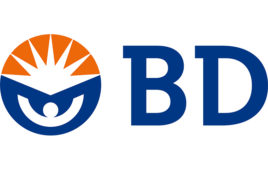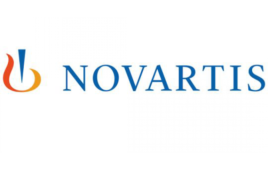
According to The Wall Street Journal, the drugstore chain is in talks to buy Aetna, the nation’s third-largest insurer. (Credit: AP Photo/Matt Rourke)
A CVS-Aetna combination could create a health colossus that can reach deeper into the average customer’s life to manage care and cut costs, according to analysts who follow the companies.
Drugstore chain and pharmacy benefits manager CVS Health Corp. is in talks to buy the nation’s third-largest insurer, Aetna Inc., according to a report Thursday from The Wall Street Journal. The newspaper, citing people familiar with the matter, said CVS might pay more than $200 a share in a deal that could be worth more than $60 billion.
Such a deal would combine a health insurer that covers around 22 million people with a company that runs 9,700 drugstores and more than 1,100 walk-in medical clinics. It also processes more than a billion prescriptions annually through CVS Caremark, its pharmacy benefits management business. Pharmacy benefit managers run prescription drug plans for employers, government agencies and insurers. They use their large purchasing power to negotiate prices
This marriage makes sense for a number of reasons, according to early reviews on Wall Street. Here are three key factors.
Better Care Management
Insurers and pharmacy benefits managers have long wanted to do more than just process claims and pay bills.
They believe the key to controlling health care costs is making sure people stay on their medicines, get care at the right locations and do whatever they can to avoid expensive hospital stays. The idea is to work with patients while they are healthy instead of waiting until they’re sick.
For example, Aetna could use the CVS network of clinics to help patients with diabetes keep tabs on their blood sugar and cholesterol levels. That could stave off more serious complications like a heart attack.
The combined company also could push the clinics and telemedicine as an alternative to expensive emergency rooms. Insurers have long fought to curb the use of ERs for anything that isn’t life threatening. Retail clinics can cost a third of the price for an ER visit, Leerink analyst David Larsen said in a research note late Thursday to investors.
CVS could expand its clinics or create small urgent care centers — which can handle a wider array of ailments — in its stores, Mizuho Securities USA analyst Ann Hynes said in another note. Then it could steer people to them by waiving co-payments for those options and charge $500 if they went to an ER instead.
Bulking Up For Amazon
Combining with Aetna would help CVS protect its stake in the pharmacy benefits management market in case online retail giant Amazon jumps into prescription drugs. It also would bring in more customers to its stores as Aetna patients fill prescriptions and possibly buy other items, too.
Pharmacy benefits managers and their investors have been sweating a possible Amazon entry into this market for weeks. Amazon has yet to announce any plans for such an expansion, but the St. Louis Post-Dispatch reported recently that Amazon has been approved for wholesale pharmacy licenses in at least 12 states.
Amazon would represent a “massive threat” to CVS, Leerink analyst Ana Gupte said. She noted Amazon could take prescriptions away from CVS and is already competing with the drugstore chain over store merchandise it sells outside the pharmacies.
Decent Regulatory Odds
Antitrust regulators have shown a disdain for big business combinations in the same sector.
They sued to stop the Aetna’s purchase of rival Humana Inc. and the Blue Cross-Blue Shield insurer Anthem Inc.’s deal with Cigna Corp. Those multi-billion dollar acquisitions would have boiled the country’s five biggest insurers down to three.
CVS also saw a plan by rival drugstore chain Walgreens Boots Alliance Inc. to buy all of Rite Aid Corp. languish for a couple years before the companies agreed to a much smaller combination.
The businesses of CVS and Aetna have fewer overlapping parts than those other combinations that worried regulators. The companies both manage Medicare prescription drug coverage, and some of that business may have to be sold.
(Source: Associated Press)




